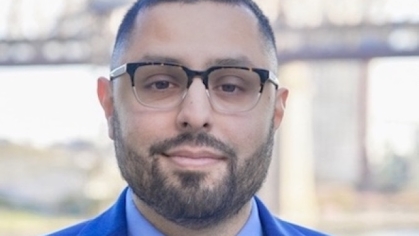By Rebecca Davis, Associate Professor of Professional Practice and Director, Office of Global Social Work Programs
Violence against children is a global public health concern and a hidden crisis of the COVID-19 pandemic.[1] Every year, approximately 1 billion children, worldwide, experience some form of physical, sexual, and/or psychological violence. An estimated eight million children worldwide live in residential institutions, or so called “orphanages,” that deny them their rights and basic social and psychological needs.[2] Three in four young children experience violent discipline by a caregiver and one in three children are bullied. Approximately 15 million girls aged 15-19 are forced to have sex during their lifetime.[3] The COVID-19 pandemic has further increased the risks of violence against children, while national, local, and family resources are increasingly constrained.[4]
The theme for the International Human Rights Day December 10, 2020, a special day established by the United Nations in 1948 to commemorate the anniversary of the Universal Declaration of Human Rights, is Recover Better – Stand Up for Human Rights! In this article, we celebrate the 2020 International Human Rights Day agenda to address violence against children before, during, and after the COVID-19 pandemic.
The Universal Declaration of Human Rights adopted by the United Nations General Assembly in 1948 protects everyone, including children of all ages against any and all forms of violence and exploitation (Article 5). Further protections are provided by the UN Convention on the Rights of the Child (CRC): children have the right to be protected from violations including the right to be protected against maltreatment and neglect (article 19) and all forms of exploitation (articles 32-36) (UN, 1989). But, if all children have a right to live free from violence, then why are so many children across the globe continuously exposed to violence and exploitation?
Although the UN does not have the authority to enforce implementation of human rights, the UN and its different divisions work to find ways to translate human rights into action at the respective country levels. In 2015, the UN adopted the 17 Sustainable Development Goals (SDGs) and the 2030 Agenda, a transformative development framework based on human rights with 169 targets. Addressing violence against children is embodied in the UN Sustainable Development Goal #16, target 16.2: End abuse, exploitation, trafficking and all forms of violence and torture of children. To this end, UNICEF is working with global social work and social services organizations to actively reduce violence against children through rights-based approaches. Key to access is a strong social service workforce that is based in a strong social work profession.[5]
Key to expanding children’s safety and well-being is challenging the old adage that “children are to be seen and not heard.” A rights-based approach requires all that have a duty to protect children, including social workers, enhance the voices of children and youth through action-oriented and participatory approaches to services. Applying this approach to all groups who find themselves powerless is at the heart and soul of human rights. Ife[6] suggests that human rights-based approaches not only gives power and position to those we serve, but it can also strengthen social work by empowering social workers through assertive practices, furthering social justice goals including human dignity, equality, and integrity.
[1]World Health Organization. (2020, April). Joint leaders’ statement – Violence Against Children: A hidden crisis of the Covid-19 pandemic. https://www.who.int/news/item/08-04-2020-joint-leader-s-statement---violence-against-children-a-hidden-crisis-of-the-covid-19-pandemic
[2]End Violence Against Children – The Global Partnership. (2020). Annual Report 2019: Power of partnership. https://www.end-violence.org/sites/default/files/2020-09/2019%20Annual%20Report.pdf
[3]UNICEF. (2020). End Violence Against Children: Key Asks for SDG 2020 Voluntary National Reviews
https://www.unicef.org/media/64471/file/sdg16_2EVAC_2pager_final.pdf
[4]UNICEF. (2020). End Violence Against Children: Key Asks for SDG 2020 Voluntary National Reviews
https://www.unicef.org/media/64471/file/sdg16_2EVAC_2pager_final.pdf
[5]Global Social Service Workforce Alliance & UNICEF. (2020). Results matrix for social service workforce strengthening (Indicators 12-16, p. 11). http://socialserviceworkforce.org/sites/default/files/uploads/Results-Matrix-for-SSW-Strengthening.pdf
[6] Ife, J. (2008). Human rights and social work. Cambridge University Press.
This story was created in partnership with Rutgers School of Social Work's Inclusion, Intersectionality, Diversity, Equity, and Advancement (IIDEA) Committee in support of our commitment to diversity, equity, and inclusion.



